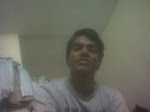Try to remember the incommunicable horror of that child[Helen Keller]'s state, communicated by Patty Duke[Actress]: a creature who is neither human nor animal, with all the power of a human potential, but reduced to a sub-animal helplessness; a savage, violent, hostile creature fighting desperately, for self-preservation in an unknowable world, fighting to live somehow with a chronic state of terror and hopeless bewilderment; a human mind (proved later to be an unusually intelligent mind) struggling frantically, in total darkness and silence, to perceive, to grasp, to understand, but unable to understand its own need, goal, or struggle.
...
Annie Sullivan, her young teacher (superlatively portrayed by Anne
Bancroft), is fiercely determined to transform this creature into a
human being, and she knows the only means that can do it: language,
i.e., the development of the conceptual faculty. But how does one
communicate the nature and function of language to a blind-deaf-mute?
The entire action of the play is concerned with this single central
issue: Annie's struggle to make Helen's mind grasp a word -- not a signal, but a word.
The form of the language is a code of tactile symbols, a touch alphabet by means of which Annie keeps spelling words in to Helen's palm, always making her other hand touches the objects involved. Helen catches on, in parts, very rapidly: she learns to repeat the words into Annie's palm. but with no relation to the objects, she learns to spell many words, but she does not grasp the connection of the signals to their referents. she thinks it's a game, she is merely mimicking motions at random, without any understanding. (At this stage, she is learning "language" as most of today's college students are taught to use it -- as a totally non-observational set of motions denoting nothing.)
When Helen's Father complements Annie on the fact that she has taught Helen the rudiments of discipline. Annie, discouraged, answers: "... to do nothing but obey is -- no gift, obedience without understanding is a -- blindness, too."
Annie's determination leads her through as heroic a struggle has as ever been portrayed on the stage. She has to fight the doubts, the weary resignation of Helen's parents; she has to fight their love and pity for the child, their accusations as she is treating the Helen too severely; she has to fight Helen's stub born resistance and uncomprehending fear, which grows in to obvious hatred for the teacher, she has to fight her own doubts, the moments of discouragement when she wonders whether the achievement of the goal she has set herself is possible: she does not know what to to do in the face of one disappointment after another, she does not know whether an arrested human mind can be awakened - it has never been done before. Her only weapon is to go on, hour after hour, day after day, endlessly pulling Helen's hand to touch the objects they encounter (to gain sensory evidence) and spelling in to her palm "C-A-K-E ... M-I-L-K ... W-A-T-E-R .." over and over again, without any results.
Helen's older half-brother, James, skeptical of Annie's efforts remarks that Helen might not want to learn, that may be "there's such a thing as -- dullness of heart. Acceptance. And letting go. Sooner or later, we all give up, don't we?"
Annie: "May be you all do, It's my idea of the original sin."
James: "What is?"
Annie: "Giving up."
James: "You won't open her, why can't you let her be? Have some pity on her for being what she is"
Annie: "If I'd ever once thought like that, I'd be dead"
...
Addressed to Helen's father: "... words can be her eyes, to everything in the world, outside her, and inside too, what is she without words? With them she can think, have ideas, can be reached, there is not a thought or fact in the world that can't be hers. . . . And she has them already. . . . eighteen nouns and three verbs, they are in her fingers now, I need only time to push one of them in to her mind! One, and everything under the sun will follow."
Addressed to Helen, who can't hear her: "I wanted to teach you -- oh, everything the earth is full of, Helen, everything on it that's ours for a wink and it's gone, and what we are on it, the light we brings to it and leave behind in words, why, you can see five thousand years back in the lights of words everything we feel, think, know -- and share, in words, so not a soul is in darkness, or done with, even in the grave. And I know, I know, one word I can -- put the word in your hand -- and whatever it is to me, I won't take less!"
...
To my knowledge, "The Miracle Worker" is the only epistemological play ever written. It holds the viewer in tensely mounting suspense, not over a chase or a bank robbery, but over the question of whether a human mind will come to life. Its climax is magnificent: after Annie's crushing disappointment at Helen's seeming retrogression, water from a pump spills over Helen's hand, while Annie is automatically spelling "W-A-T-E-R" into her palm, and suddenly Helen understands. The two great moments of that climax are incommunicable except through the art of acting: one is the look on Patty Duke's face when she grasps that the signals mean the liquid -- the other is the sound of Anne Bancroft's voice when she calls Helen's mother and cries: "She knows!"
~~~~~~~~~~~
Taken from the book PHILOSOPHY: who needs it, chapter Kant versus Sullivan (p.122 - 126, centennial edition) written by Ayn Rand. She is referring to the drama The Miracle Worker.
Copyright © Leonard Peikoff.
PS: The ellipsis shows some text is clipped.
Oct 7, 2011
Subscribe to:
Post Comments (Atom)

0 comments:
Post a Comment